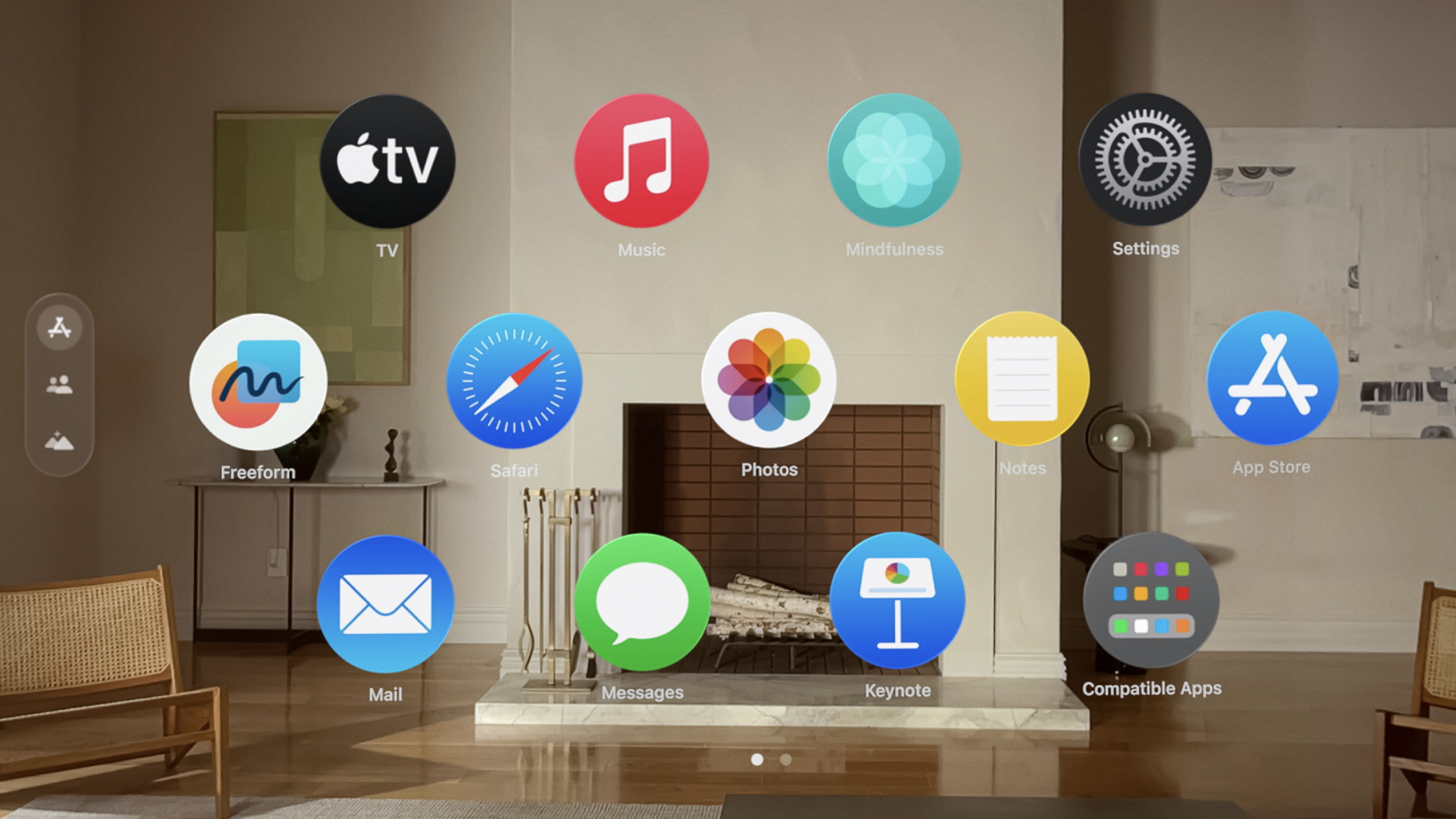Apple's Vision Pro headset might not support Progressive Web Apps at launch, limiting website functionality via Safari
Websites won't be able to send notifications and more.

Apple's Vision Pro headset will finally go on sale on February 2 and it's already available for preorder. But even as we get closer and closer to the spatial computing headset's launch we continue to learn new things about what it can — and cannot — do. Expectations are understandably high for the headset, and all eyes will be on early adopters to see how things shake out. But a new report suggests that there could be one glaring omission in terms of the visionOS day one feature set.
According to that report, the Vision Pro might not support Progressive Web Apps, or PWA, when it launches next month. A PWA is a website that can be treated almost like a real app on certain devices, including iPhones. When you tap "Add to Home Screen" in Safari, the icon that is then added to your iPhone is a PWA. And that allows for some specific features including the ability to receive notifications and run without a stable internet connection — two things that standard websites cannot offer.
But it seems now that the Vision Pro won't support PWAs, at least not at launch, and that could be a limitation given the number of developers and companies that have so far decided against bringing their own apps to the platform. As an example, YouTube's website won't be able to send new video notifications to Vision Pro owners. What's more, visiting a website like YouTube will require launching Safari and then choosing a bookmark because there will be no option to add the web app to the Home Screen.
Oversight or design?
This was all noticed by developer Steve Moser who posted to X when he noticed that the option to add PWAs to the Vision Pro's Home Screen isn't available in Safari when using the visionOS simulator.
TIL that the Apple Vision Pro does not support Progressive Web Apps (PWAs). This means that in Safari, users won't find an "Add to Home Screen" option. Without PWA support, features like Web Push Notifications are not available. As a result, applications that do not launch with… pic.twitter.com/hfejtF6IJoJanuary 22, 2024
It isn't clear whether this limitation is by design, or if it's something that will be added in a future visionOS update. As Moser rightly said in a follow-up post, "visionOS not supporting home screen layout changes on day one would its 'iPhone didn't support MMS at launch' moment. Interestingly, a reply by Parker Ortolani also confirmed that "you can't even customize the home screen layout in the simulator." That also seems like something that will surely change in the future.
It's also possible that these limitations will only apply to the Vision Pro and visionOS simulator and that the final Vision Pro headset will support PWAs and the editing of the Home Screen. But with Apple having been so secretive and limiting the ways in which hands-on events play out, it's impossible to know whether that's the case or not.
Regardless, the Vision Pro headset is almost here. Those who have yet to place a preorder still can albeit with a wait for delivery beyond that February 2 launch date. Prices start at $3,499 for the 256GB model while 512GB and 1TB models are also available for people who believe that they might need more space to install apps and content.
Master your iPhone in minutes
iMore offers spot-on advice and guidance from our team of experts, with decades of Apple device experience to lean on. Learn more with iMore!
Apple is already thought to be hard at work on a cheaper Vision Pro, but details are sparse as to what features will be culled and when it will go on sale. For now, people who want to see what Apple's spatial computing future will look like will have to splash high-end MacBook Pro money to do it.
More from iMore

Oliver Haslam has written about Apple and the wider technology business for more than a decade with bylines on How-To Geek, PC Mag, iDownloadBlog, and many more. He has also been published in print for Macworld, including cover stories. At iMore, Oliver is involved in daily news coverage and, not being short of opinions, has been known to 'explain' those thoughts in more detail, too. Having grown up using PCs and spending far too much money on graphics card and flashy RAM, Oliver switched to the Mac with a G5 iMac and hasn't looked back. Since then he's seen the growth of the smartphone world, backed by iPhone, and new product categories come and go. Current expertise includes iOS, macOS, streaming services, and pretty much anything that has a battery or plugs into a wall. Oliver also covers mobile gaming for iMore, with Apple Arcade a particular focus. He's been gaming since the Atari 2600 days and still struggles to comprehend the fact he can play console quality titles on his pocket computer.
